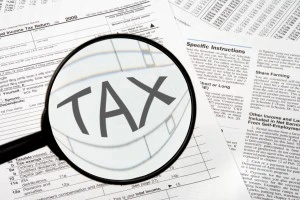 If you are in a 100 percent Chapter 13 plan in the Northern District of Georgia, you will be able to keep all of your tax refund. However, if you are in a Chapter 13 case where your credit card debt, medical debt and other unsecured debts are being eliminated in your plan, you will be required to mail your tax refund to your Chapter 13 trustee during the applicable commitment period of your Chapter 13 plan.
If you are in a 100 percent Chapter 13 plan in the Northern District of Georgia, you will be able to keep all of your tax refund. However, if you are in a Chapter 13 case where your credit card debt, medical debt and other unsecured debts are being eliminated in your plan, you will be required to mail your tax refund to your Chapter 13 trustee during the applicable commitment period of your Chapter 13 plan.
What does the Chapter 13 trustee do with all of the money she gets from your tax refund?
The answer is that she distributes it to the creditors in your case who have filed valid proofs of claims with the bankruptcy court. Not every credit card company or medical creditor will bother to file claims. People with active Chapter 13 cases can access their accounts online to see who has filed claims and who is getting paid from the bankruptcy plan payments.
Will paying tax refunds to the trustee decrease the number of payments I need to make to the Trustee?
The answer to this question is maybe. First, I will describe a hypothetical case where it would decrease the time of the case and then I will describe one where it does not.
Let’s say you have a case where the debtor has a 36 month applicable commitment period. This means that the case must run for a minimum of 36 months unless all of the creditors are being paid 100 cents on the dollar. In this hypothetical, lets assume the debtor is wiping out about 25,000 in credit card debt. If the plan is set up to run for a period of 54 months (because this is what it would take to pay all of the secured debt), then paying extra money into the case with tax refund money would lower the length of time of the case.
In contrast, lets say the debtor is in a case with a 60 month applicable commitment period. This means that the case has to run for five years unless the unsecured creditors are getting 100 cents on the dollar in the Chapter 13 plan. In this scenario, lets say that a debtor pays a $10,000.00 tax refund to the Chapter 13 trustee. Where does this extra $10,000.00 go? I’ve got bad news. It all goes to the unsecured debt (credit card debt, medical debt and other debt not debt not secured by any property). In other words, this money goes up in smoke without decreasing the length of your case at all.
If you are going to receive a large tax refund, you need to set up an appointment with your bankruptcy attorney. Let your expert examine the situation to see if there are any beneficial solutions. Don’t bury your head in the sand and keep the refund money without notifying your bankruptcy attorney. Ignoring the bankruptcy rules will get your case dismissed.
Other Posts:
3. How much does it cost to file?
